Abduweli Ayup was born in 1973 in Upal, a town close to the city of Kashgar in the far west of the Xinjiang Uyghur Autonomous Region—or East Turkestan, as many Uyghurs prefer to call their homeland. Upal is where the medieval linguist Mahmud al-Kashgari is buried. When he was a child, Abduweli’s father, Ayup, often took him to visit the shrine. Ayup was a member of the Communist Party and taught in state schools.1 During the Cultural Revolution he was “sent down” to work on a pig farm. The Han cadres who worked beside him later rose to high positions in the regional government, but his standing never fully recovered.
Inspired by Kasgari, Abduweli studied Turkic philology at Minzu University in Beijing, which is dedicated to China’s ethnic minorities. There he met Ilham Tohti—an economics professor and civil rights activist, sometimes referred to as “The Uyghur Mandela,” who in 2014 was sentenced to life in prison on charges of “separatism”—and fell in with a circle of Uyghur students Ilham mentored. In 2009 Abduweli received a Ford Foundation scholarship to pursue a graduate degree in linguistics in the United States. He was admitted to Stanford and Columbia but chose the University of Kansas in Lawrence to experience “the real America.” A few weeks after he arrived, a video spread across Xinjiang: almost two thousand miles away, at a toy factory in southeastern China, Han employees had attacked Uyghur migrant workers over rape allegations (which officials later found to be false) and, after an hours-long brawl, killed two Uyghur men.
On July 5 Uyghurs demonstrated on the streets of Xinjiang’s capital, Ürümchi. They demanded not only justice for the victims but also social equality. Many waved the Chinese flag. When the police responded with force, a riot broke out: some Uyghurs attacked Han neighborhoods, and two days later Han mobs retaliated. Around two hundred people died. The military was deployed; dozens of Uyghurs were disappeared; Beijing imposed a communications blackout on the region. Abduweli lost contact with his wife, Mihrigül, and young daughter, Mesude, until they called from Shanghai nine months later. Sympathetic university administrators enrolled Mihrigül so she and Mesude could obtain passports and exit visas—a challenge for any Uyghur, and especially one who was in Ürümchi on July 5.
Mesude loved America. She picked up English and refused to speak her mother tongue. Abduweli, who was studying linguistics precisely to revive Uyghur education, realized his work would have to begin sooner than expected. Against everyone’s advice, he decided to return with his family.
*
The constitution of the People’s Republic of China enshrines the freedom of ethnic minorities “to use and develop their own spoken and written languages, and to preserve or reform their own customs and ways.” It also promises special autonomous status to certain regions where groups other than the Han historically predominated. Mao adopted these policies as part of the Leninist model, but, fearing secession, granted regions like Xinjiang less autonomy even on paper than the USSR did to its non-Russian republics. The rise of nationalism in republics bordering Xinjiang, and the Soviet Union’s subsequent collapse, led Chinese officials to view Uyghur autonomy as a liability.
During the 1990s, Deng Xiaoping’s “reform and opening” brought a brief cultural renaissance to the Xinjiang. But, after September 11, 2001, the state used the twin menaces of “terrorism” and “separatism” to justify new restrictions. Education was hit especially hard: from 2002 Uyghur was phased out as a language of instruction above high school. Throughout the 2000s, more and more pre-schools, elementary schools, and middle schools were directed to implement “bilingual education”—a deceptively named policy which in practice replaced Uyghur with Mandarin.
In 2011, now back in Xinjiang, Abduweli prepared to set up a Uyghur-language program for young children. With two partners he then opened a kindergarten in Kashgar and helped similar initiatives in other cities. He also wrote and spoke widely on the Uyghurs’ right to their language. The “Mother Tongue Movement” was immediately popular; the local state TV station even prepared a segment on Abduweli (which was never released). Eventually a high-ranking Uyghur official invited him to dinner: in a private room in the back of a Han restaurant, the politician grilled him on his funding sources and foreign connections—then, convinced that he wasn’t a “separatist,” gave his blessing. “This is our last defense,” he said. Abduweli thought they might succeed after all.
But the authorities slowly closed in. First they arrested Abdurahman, a friend who supported the movement. Then they summoned Abduweli “to tea” at the police station and pressured him to stop his project. An anonymous informant warned him that an arrest was imminent. In August 2013 an unmarked police car pulled up as he was overseeing the construction of a new school building.
For fifteen months Abduweli was detained and tortured in Xinjiang’s Döletbagh, Liudaowan, Tengritagh, and Köktagh prisons. His supposed crime kept changing and at one point he was threatened with the extremely serious charge of separatism. The court eventually settled on “illegal fundraising”—though neither the interrogators who accused him of being a CIA agent nor the guards who made him wear a political prisoner uniform seemed to take this seriously. He was abruptly released in November 2014, possibly due to an article about his disappearance in The New York Times and letters that the Linguistic Society of America and Committee of Concerned Scientists sent to Xi Jinping. Abduweli learned about Ilham Tohti’s life sentence the day after he got out.
The next year he fled to Turkey with his family, then secured asylum in Norway, where he now lives. In exile he has worked tirelessly to develop Uyghur language textbooks and educational programs for children in the diaspora while documenting China’s atrocities against his people.
I first heard of Abduweli as an undergraduate at the University of Texas at Austin independently studying Uyghur. I was moved by his commitment to the language—most linguists don’t risk their lives for their work. In 2021 I invited him to speak to UT’s linguistics department. We stayed in touch. Two years later, he asked if I would translate a memoir he was writing about his time in prison.2
Reeducation centers for politically “sensitive people” were active since the beginning of Xi’s “People’s War on Terror” in 2014. But it was only in 2017, when this campaign was extended to target all Uyghurs, that the large-scale camps were established. An early victim of the repression, Abduweli was held in normal prisons, alongside petty thieves and drug dealers, con men and murderers—as well as many political prisoners. In 2019 China announced that most “students” had “graduated” from the reeducation camps, which were closing. The ploy, which largely succeeding in diverting international attention, was accompanied by a drive to “legalize” the genocidal campaign through mass sentencing. People are now jailed for such crimes as contacting relatives in foreign countries, rejecting alcohol, or owning copies of the Qur’an.
China no longer publishes sentencing statistics for Xinjiang. But in 2022 a trove of leaked data revealed that Konasheher county—which includes Upal—had the highest incarceration rate in the world. Hundreds of thousands of Uyghurs —along with Kazakhs and Kyrgyz, other native Turkic Muslims—still suffer what Abduweli describes in the excerpts below.
—Avi Ackermann
1.
July 2014
My luck improved after the start of the trial. I was teaching English to a guard who moved me to a more hygienic cell in Block 2 of Liudaowan, where the rules were laxer. Our cell boss—an inmate appointed to oversee the others—was a large, kindly Han man who paid us little attention. He’d stacked Mandarin books on the shelf meant for our bowls. I was surprised to find a few Uyghur novels among them: Khalide Israil’s Past, Zordun Sabir’s Motherland, and Muhemmed Ehmed Chopani’s Semender. All traces of our language had been strictly forbidden in the other jails.
The novels belonged to Memetyüsüp, a tall inmate with bulging muscles, a pale face, and big sheep’s eyes.3 After he split from his fiancée, the cell boss told me, Memetyüsüp “developed a nervous problem” and murdered an elderly Han man. When his “sickness” flared up, he’d scream and hit people, which made trouble for the guards. They allowed him to speak in Uyghur and read Uyghur books to keep him calm. He got his way in the cell because he terrified everyone else, and because they knew he was sentenced to death. The Uyghur guards liked him because the Han inmates couldn’t push him around. They smiled when they brought his meals.
Memetyüsüp apparently recognized me from my online lectures. “You’re here?!” he said when he first saw me. “This isn’t the place for you. Anyone who knows right from wrong won’t be safe here.”
“Aka,” he continued, “you’re from Kashgar, just like Khalide Israil! Are we stuck in this mess because of Apaq Khoja?4 If one man got us here, another might save us.”
“It’s not just a single person,” I said. “People pass their problems onto their children.”
My answer didn’t satisfy him. But before I could say anything else, he turned and walked away.
*
Memetyüsüp was awaiting execution. The victim’s family was willing to request clemency in return for one and a half million yuan. Abliz, a restaurant owner doing time for crooked business deals, offered to help with the money. But Memetyüsüp turned him down.
Other prisoners with death sentences mostly lay in bed, but Memetyüsüp hated to be idle. Though he’d never finished high school, he spoke a smooth Mandarin and understood it well enough to read difficult books. It seemed impossible to me that someone who read that much—especially Uyghur novels about morally upstanding people—could commit the crime he was accused of.
My presence seemed to calm Memetyüsüp, and the guards let us converse in Uyghur. He didn’t have much to say after that first day, except when he shared his special death-row meals with me. “You’re not like the others. You need to stay healthy,” he’d whisper, making a tight fist. He was an insomniac, and often covered for me when my turn came to watch over the other prisoners at night. Even during his long bouts of silence, I could tell that something was on his mind. He’d look around, working his lips wordlessly. I was patient, and one day he took me out to the yard. (Only we were allowed to go here—he, because he was crazy, and I, because I subdued him.) As we walked in circles, Memetyüsüp told me his story.
“Aka,” he said, “they call me a murderer. I even heard you say I killed an innocent person. But that’s not true. I didn’t kill a person, I got rid of a demon. A monster that was sucking my sister’s blood. I was going to take this secret with me to the next world, but I just can’t keep it in.”
His voice shook.
“That khitay said he would take care of my sister. But he married her instead … That’s why I killed him.”5
For a moment, he couldn’t speak.
“I’m from Maralbéshi, out west, like you. You know we get earthquakes over there. Wasn’t that last one ten years back? My mom and dad died then. Our house fell on them while my sister and I were playing outside. She was eight and I was eleven. We stayed with our grandmother for a while, until she died, then with our aunt and uncle. But they didn’t want us, so someone from the government came and took us to the Maralbéshi County Welfare School. We had to sleep in the hallway because the dorms were full. In the spring they moved my sister and some other kids to an orphanage in Ürümchi. She loved me so much, even when she was little. In the welfare school, she’d always give me some of her food. ‘You haven’t eaten enough,’ she’d say.”
The children left behind in Maralbéshi studied Mandarin in the mornings and for the rest of the day apprenticed with mechanics and cooks in the bazaar. Memetyüsüp learned to fix cars, hoping for a job in Ürümchi, where he could search for his sister. (After July 5, Uyghur drivers had flooded to the city, to make up for the Han who now refused to pick up Uyghur passengers. Those new cars needed servicing.) In 2010 Memetyüsüp finished his vocational program and got his wish: his boss took him to Ürümchi. He combed the city’s orphanages, but when he finally found the one where his sister had stayed, he discovered she’d been given to a Han foster father. Memetyüsüp went to the man’s registered address, but no such person lived there.
*
Memetyüsüp settled into a new routine. After a half-day shift at the mechanic shop, he drove a rental car as a black-market taxi through the evening. This wasn’t for the money; he was still looking for his sister.
On the freezing Chinese New Year of 2011 he saw an old Han man trying to hail a cab on the northern outskirts of the city, not far from Köktagh Prison. With his left arm he barely supported a plastic bag stuffed with meat, which had dirtied his shirt. His right arm ended at the elbow. Memetyüsüp pulled over. When the man got in, a stench filled the car. Cow stomach, he said. It took too long for butchers to clean, so they let him have it in exchange for sweeping their shops. The man cleaned the tripe himself and sold it to restaurants. He relied on taxis to get to his suppliers, but once drivers smelled the raw tripe, they rarely let him in. As Memetyüsüp drove, his passenger proposed a deal: once a week, they would pick up the meat in his car and then split the profits. Memetyüsüp agreed.
The man’s name was Jia. Memetyüsüp called him Lao Jia, adding the title due an elder in Mandarin. For two months he drove Lao Jia between butcher shops and his two-room house in the barren hillside slums of Mt. Yamaliq, at the southern end of Ürümchi. When they arrived, Lao Jia would carry the meat inside himself, though Memetyüsüp hated to see him struggle. One day, when Lao Jia had a larger haul than usual, Memetyüsüp got out to help.
Lao Jia’s house reeked. In the kitchen a woman was boiling huge pots of stomach. Memetyüsüp couldn’t believe it: she looked just like his sister. “Are you Uyghur?” He asked her in our language. “Are you from Kashgar?” She answered coldly in Mandarin (exactly what, I don’t remember) and went into the other room. But there was understanding in her eyes. “That’s my wife,” Lao Jia said. Memetyüsüp felt his heart was being devoured by flies. He left without saying goodbye.
Back in his rented room, he pulled a photo album from his nightstand and stared at a picture of his mother from her youth. He’d always imagined that his sister would look like her when she grew up. She was the spitting image of Lao Jia’s wife. They had the same ewe-eyes, and identical moles on their right cheek. He flipped through the rest of the photos. In each of them he saw the big eyes, the mole like a grain of millet. Darkness seeped into his vision. For the first time in his life, he went to a liquor store. He bought a bottle of eighty-proof Aq Térek whiskey, drank it all, and lay in bed for three days.
When he recovered, Memetyüsüp returned to drive around the slums, waiting for a chance to talk to the woman who looked like his sister. After a week he worked up the courage to knock on Lao Jia’s door. No one answered. Memetyüsüp went to a neighbor’s house and asked where the couple were. The neighbors didn’t know; they’d left abruptly. Memetyüsüp felt like he was being crushed in a vise. Lao Jia owed him money, but that wasn’t why he’d disappeared.
*
Memetyüsüp searched for three years before he saw her again, walking with Lao Jia in front of Xinjiang Normal University. He thought of following them home and setting their house on fire, but the image of his sister writhing in the flames changed his mind. Instead he pulled over and got a wrench from his car. In full view of the police guarding the campus, he went up behind Lao Jia and slammed the wrench into his head. His sister screamed and ran away. The police rushed over and surrounded him with weapons drawn. “Shoot,” Memetyüsüp told them. A blow from behind knocked him off his feet. A cop had pinned him to the ground with a long crowd-control fork.6
“Aka,” Memetyüsüp told me, “Abliz said he’d get together a million and a half for me, but I said no. I don’t want to stay alive just to see that demon who married a khitay again. I knew my sister was still here in this world, and I hoped to find her. I thought I’d take my father’s place and we’d live together again. I’d comfort her and find her a marriage. I was going to hit her with the wrench, too, but I couldn’t do it.
“Aka, what am I doing alive? If that really was my sister…I couldn’t bear to see her, but I couldn’t bear not seeing her, either. I didn’t say any of this in my testimony. I don’t know what part of me is talking. But fine, whatever happened to my sister shouldn’t hurt her reputation. All the best to her, she should live, and may God make her grateful. Someday, she’ll remember she had a brother. She won’t abandon my gravestone…”
Memetyüsüp trailed off. He let his head sink down to his lap and began to sob, then went over to the sink to wash his face. His silence returned for good after that. He wouldn’t even look straight at me, as if I were naked. Still, he insisted on sharing his meals. The handles of our spoons were short and unwieldy—they were cut down to keep us from making shivs—but he doled out exactly half his bowl. I told him that he didn’t have to be so precise. “It’s what I owe you,” he replied. I watched his hands and thought of his sister in the orphanage, sharing what she had with her older brother.
2.
August 2014
The guards pulled a black sack over my head, cuffed my wrists, shackled my ankles, and shoved me onto a bus. I didn’t know where they were taking me. I couldn’t see anything. I heard nothing except for the other prisoners’ coughs and grunts. When the bus stopped, they dragged us out by our handcuffs, led us into some kind of yard, and herded us into lines. I don’t know about the other prisoners, but guards held me tightly at either side. Someone gave me a tiny pill to swallow. Then they marched us into a building and took the bags off our heads, revealing a large room filled with armed police, barking German shepherds, and at least a hundred prisoners. It was an inmate transfer. I was glad to spot Memetsidiq but Dilyar wasn’t there.7
This was Köktagh Prison, at the other end of Ürümchi. It seemed that, with Liudaowan filling up, they were scattering Uyghur political prisoners across the region. Köktagh was much bigger. It had clearly been built for an operation like this.
They drew our blood. I’m not sure why, but if I had to guess I’d say it was related to the pills we were forced to take—I had heard that pharmaceuticals were tested on prisoners. We were split into two lines: one for people with AIDS and other infectious diseases, and the other for the rest. The nurses asked us in disgust, “Do you shoot heroin? Do you visit prostitutes? How many times per week?”
Then I was grouped with two others and brought to a cell. We stood beside the door until a guard pulled us in by the neck. My head spun from the putrid stench: the toilet was just behind a raised wooden deck that stood in the middle of the room. It couldn’t have been more than a covered hole in the ground: the smell of shit filled the entire space. That’s probably why the guard wore a mask and slammed the door behind him in a panic. “Eini!” he shouted, on his way out, calling the cell boss in a Chinese accent. (I guessed it was the Uyghur name Ghéni.) At least they use our names instead of ID numbers here, I thought. I was surprised to have a Uyghur cell boss, but it turned out that Ghéni was a regular, a drug dealer who was never out of Köktagh for long. He must have worked his way up over the years.
Twenty-one prisoners in regular uniforms were seated atop the wooden platform, and four political prisoners in orange vests were on the floor. Ghéni scolded a few who weren’t sitting perfectly cross-legged with their hands on their knees. He made us three “new guys” face the wall, then asked us about our offenses and the money in our accounts. The Han next to me shouted, “Three thousand yuan!” I had around five thousand, but as a political prisoner I wasn’t allowed to buy better food with it. At least I could bribe Ghéni to stay on his good side. An inmate without money for his cell boss would be treated accordingly.
*
Ghéni kept us standing up against the wall until lunch. There were none of the distractions I’d come to expect from other prisons: no inspection or lesson on the television, no boiled water delivery or ten-minute recess. I stared at the Chinese and Uyghur names scrawled into the limewashed cement. There were a few love poems faintly visible, too. One of them, trapped in my memory still, read:
،بىر كۈن ئۆتتى، بىر تاغ ئاشتىم
،تۇمان توستى قۇياشىمنى
،ئۈمىد رىشتىم ئۈزۈلگەيمۇ
.كۆرەلمىسەم قاياشىمنى
The day is past, the mountain climbed,
my sun now hidden by the mist.
Won’t it snap, my hope’s thin thread,
If I can’t see the friend I’ve missed?8
A calendar was scratched into the wall. It began on January 3, 2014. That probably marked when a man was arrested or brought to this cell. Every following date had been crossed out until August 12, which is probably when he was transferred. While no one was looking, I crossed out August 26 with my fingernail.
Just above the calendar, another poem was written in gracefully rhyming Uyghur:
،سەن، يەر يۈزىدىن پالانغان ماكان
.مەن، سېنى ئىزدەپ ئازغان سەرگەردان
،سەن، توغراقلارنىڭ تومۇرىدا قان
.مەن، ھەر باھاردا كۆكلىگەن ئارمان
،سەن، ماڭا تالىق تۇغۇلغان جانان
.مەن، ۋىسالىڭسىز قاغجىرىغان جان
،سەن، سۇلالەمسەن قىلىنغان پايخان
.مەن، تەختى-بەختى كۈل بولغان خاقان
You, a place banished from the earth,
I, the pilgrim lost searching for you.
You, blood in the poplars’ veins,
I, spring’s fresh buds of longing.
You, born beloved by me,
I, withered without you.
You, a spreading empire,
I, the ruined king of ash and dust.9
It seemed to recall the lines from “You,” my favorite poem by my friend Kérimjan Sulayman:10
،سەن، ئېيتاي دەپمۇ ئېيتالمىغان كۈي
.ئىشىك ئېچىپ بەرمىگەن تۇغۇم
،سەن، بىلىپ تۇرۇپ توۋلىيالمىغان
،ئانا بىلەن مەنىداش ئۇقۇم
.مەن ئىزدىگەن، مېنىڭ يوقلۇقۇم
You, the song I long in vain to sing,
a name that opens no door.
You, a word meaning mother
that I know but cannot utter,
what I’ve searched for, my own absence.11
The poem felt fitting for this place. I peered at the lines as though the poet’s face would appear between them. His words thrust my heart into the fire that burned his own.
Gently, fearing they would rub away at my touch, I ran my fingers over the scratched marks. Those poems were the first I’d read since I was locked away. Drunk on them, I wondered about the man who’d incarnated his love in the word “you.”
The poets who’d graced my cell wrote about freedom, love, and our homeland—and they’d brushed eternity with their words. If only we’d been in there at the same time. I longed to meet someone like them, who could share a vision beyond prison life, so I could give new meaning to those days that held nothing but sleeping and waking up, eating and using the toilet. I would consider myself blessed to have such a cellmate.
If only our dreams weren’t tested by interrogation, torture, and trials. If only our ideals didn’t wither. If only I had the strength to hope. But I was silent and alone, like a thornbush in the desert. I could do nothing but wish for a friend to help me dream again.
Ever since I was arrested, the thought of praying for a long life, good health, or well-being sickened me. Such prayers made it seem that I was only alive to keep living, that I struggled simply to pay off a debt to life itself. The misery of each day’s passage, the whole ordeal between birth and death—I wanted to bury it all. If you can truly long for death, I did, but the heaven I dreamed of wasn’t a jihadist’s paradise, filled with houris. It was a homeland for my people, where everyone is hur: free.
*
This huge prison was as crowded as the others. A new crackdown was clearly underway. No one I spoke to knew why the police had abducted them. Each inmate was a bomb, filled with nausea, impatience, and boredom. One would ready the wick and another would light it. They’d seize on every tiny accident, screaming insults and swinging fists to forget their captivity, if only for a moment.
The stench in our cell was unrelenting. A blend of human waste, sweat, and rancid towels greeted us each morning, stayed there when we sat cross-legged on the floor to eat, followed us into our sleep. I breathed the foul air for four months.
At first they made me sleep on the floor. Then, after a while, I got a bunk right next to the hole. That first night in bed something splashed on my face; I opened my eyes to see a Han letting out a torrent of piss right next to me. I was about to say something, but I didn’t want to risk waking up anyone else. Since it was forbidden to sleep with our heads covered, I was humiliated every time someone got up to pee.
A shrill voice startled me awake. The cell television was playing “The Fifty-Six Nationalities Are Fifty-Six Flowers.”12 I listened to the lyrics’ pleasant lies, twisted a few times under my blanket, then got up. When they first arrested me and strapped me into the tiger chair, the interrogators had kept me awake with this song. Later I heard it at the end of my early watches at Liudaowan.13 It followed me to every cell of every prison.
My hands trembled as I made my bed, pulling the blanket tight to make it flat as a matchbox lid. I’d often been screamed at for violating the sacred laws of blanket-folding. The inmates kept merciless watch over each other because the guards would punish the entire cell if they found a mistake.
I turned back to the rest of the cell: the Uyghurs were washing their faces, while the Han crouched together by the rear door to the outdoor yard, sucking in fresh air through the hinges. Whatever they could get would help, since the cell was sealed off from 5:00 PM until 8:00 AM. (Even once the door was opened, we couldn’t go outside.) I stared as they cursed and jostled to get as close to the crack as possible. When they turned back, misery returned to their faces.
I thought of running to the door, if only to show the Han that I, too, had a right to smell the outside. I imagined filling my lungs with the ice-cold air, clear as spring water, that leaked in from the world of free people. But the fantasy faded when I imagined standing beside the men who’d peed on me. In any case, I was new and didn’t want to break any rules.
I turned from the chaos at the door to the Uyghurs washing their faces at the sink by the toilet. I wondered why they were lingering for so long near the source of the unbearable smell. Then, seeing the faint movement of their lips, it dawned on me they were purifying themselves, unhurriedly preparing for forbidden prayers.
Days later, when I joined in the ablutions, I learned that the other Uyghurs had discovered a way to speak our language. They mumbled little songs, making noises that the Han and Hui wouldn’t recognize as speech.14 One man would sing about a dream he’d had or a person he longed to see. When he finished, another would begin.
One night I dreamed that I was back with my daughter, carrying her on my shoulders. Then she flew away. I couldn’t shake the vision and sang about it to the others. At my words, nonsense to the people by the door, an old Uyghur man wept.
3.
September 2014
We had a Kazakh guard in Köktagh. He gave special treatment to the few Kazakh prisoners, and spoke Uyghur to us, pronouncing each word as though reading out of a book. The Han inmates mocked him relentlessly. Kazakhs were filthy savages, they said, and his studded leather boots were “horseshoes”—if he wore those and still considered himself educated, it only proved how backward his kind were. These Han had received a pitiful schooling and knew nothing about the people they lived beside. It occurred to me that China’s minorities were at the mercy of a totally ignorant majority.
Aydar was studying for a self-directed degree in psychology, hoping to get promoted.15 The authorities apparently wanted prison guards specially trained to deal with mentally ill inmates, many of whom prison had driven insane. One day he told me he had read over my file, and knew I’d taught in Chinese universities and studied in America. He couldn’t understand what someone like me was doing in Köktagh. He lent me his textbooks and I passed the time reading them, which surprised some of the Han inmates—where did a Uyghur learn to read books like that? They asked me what the books were about. “Psychology,” I said. This seemed to bother them, and they asked if I could read their minds. “Yes,” I replied. I told them that if they ever lied to me, I’d know it from their eyes. They said I’d be a hard cop to fool. “That’s why I’m teaching this to Aydar,” I said.
He sometimes asked me for help with his coursework. Many Mandarin terms—like tónghuà (assimilation) and wénhuà chuánrù (acculturation)—were new to him. Aydar also asked me to translate pictures of Arabic words that religious Uyghur prisoners had written on the walls of other cells. One, I remember, was ṣabr: “patience.”
*
As he walked down the halls at night, Aydar’s boots clicked loudly, keeping up exhausted inmates. They lay awake for hours, muttering every ugly thing in the world about him. But when it was my turn to stay upfor the night watch, the sound of his shoes comforted me. Hearing them, I knew to anticipate an inspection. I would nudge the inmates who were sleeping in forbidden positions—their heads covered, an elbow over their faces, an arm under their blankets. I’d wake up the other inmate on watch if he’d dozed off, or slip the stifling orange vests back onto political prisoners who’d taken them off. (Those caught without them could be forced to stay awake all night, or cuffed and shackled, or locked in a solitary cell too small to stand up straight in.) When I didn’t hear Aydar’s shoes, I worried that something bad had happened.
Some nights the clicking would take me back to my childhood, when all sorts of shoes still had iron studs in the soles. At school, just by the ringing of their footsteps, we could tell whether the teacher was a man or a woman, young or old, coming to discipline us or to take roll. Other nights, the clicks would remind me of my father, who’d loved Ghulja-style hobnailed boots.16 In the evenings, when I heard him come down the street, I’d hide the novel I was reading and pull out a textbook.
*
Two histories of the Uyghur people clashed in the cell. One was what we knew from our own communities, including the diaspora in Tashkent, whose radio broadcasts many in our region listened to in secret. The other was written in state textbooks and promoted in the official media. On the outside, Uyghurs and Han wielded their historical narratives like weapons. But in the cell all we could do was watch the Han get into arguments with each other about who we were and what should happen to us. Most Uyghurs didn’t dare intervene.
It was only in prison that I discovered how ignorant the Han were about Uyghurs, Kazakhs, and other nations that China had colonized. The Han inmates told me that Kazakhs “run around on the steppe their whole lives without ever bathing,” that Uyghurs–or “Xinjiangers,” as they called us—are “savage kebab-sellers who wear knives all the time.”17 They thought our language was an incomprehensible dialect of Chinese, but also saw no difference between us and other Muslims. They associated the word salam with “Uyghurs and terrorists,” which was hard for me to hear, especially from nationalistic Han like Liu, who told me he wanted to bomb the Yasukuni Shrine in Japan.18 The more we talked, the deeper a rift I saw between us—especially the better educated among them.
Still, I did my best to teach them. Once we were made to watch a news program on ISIS. While the Han argued over whether all “terrorists” should be eliminated, Liu asked me: “Aren’t Uyghurs and Syrians the same thing?” By the time we finished talking, he was convinced that Uyghurs were the victims of China’s “war on terror.” Liu, who ran a gold mine near Korla, promised to send me money to write a book in Mandarin explaining all this when he was released. He never did.
*
One day officials from Ürümchi’s municipal prison administration came for an inspection. We lined up naked in the yard with our faces against the wall, while they searched the cells. That was my first time outside since arriving at Köktagh. The autumn wind was bitter, and our teeth chattered. The inspection took them a long time: they must have searched down to the stitches of the bedding. At last they emerged to a yard echoing with the sound of coughs. “Hello, sirs! Welcome to inspection!” we shouted in Mandarin. After that, none of us managed a full answer to their questions. We were shivering too hard.
Whether because of their “conscience” or because interrogating so many trembling, naked men seemed like a hassle, they let us return inside. We assumed our assigned places either on the wooden bunks or by the cell door, our hands on our knees. Then they asked us if we had any requests.
“Sir,” a Han drug smuggler cried out. He began to complain about Aydar: when political prisoners heard him approaching, they knew to put their vests back on. And the guard was a nationalist—he even brought books to Uyghur prisoners and spoke their language.
My heart thudded: he was talking about me. Political prisoners were placed under stricter watch after that, and our vests stayed on. I never heard Aydar’s shoes again.





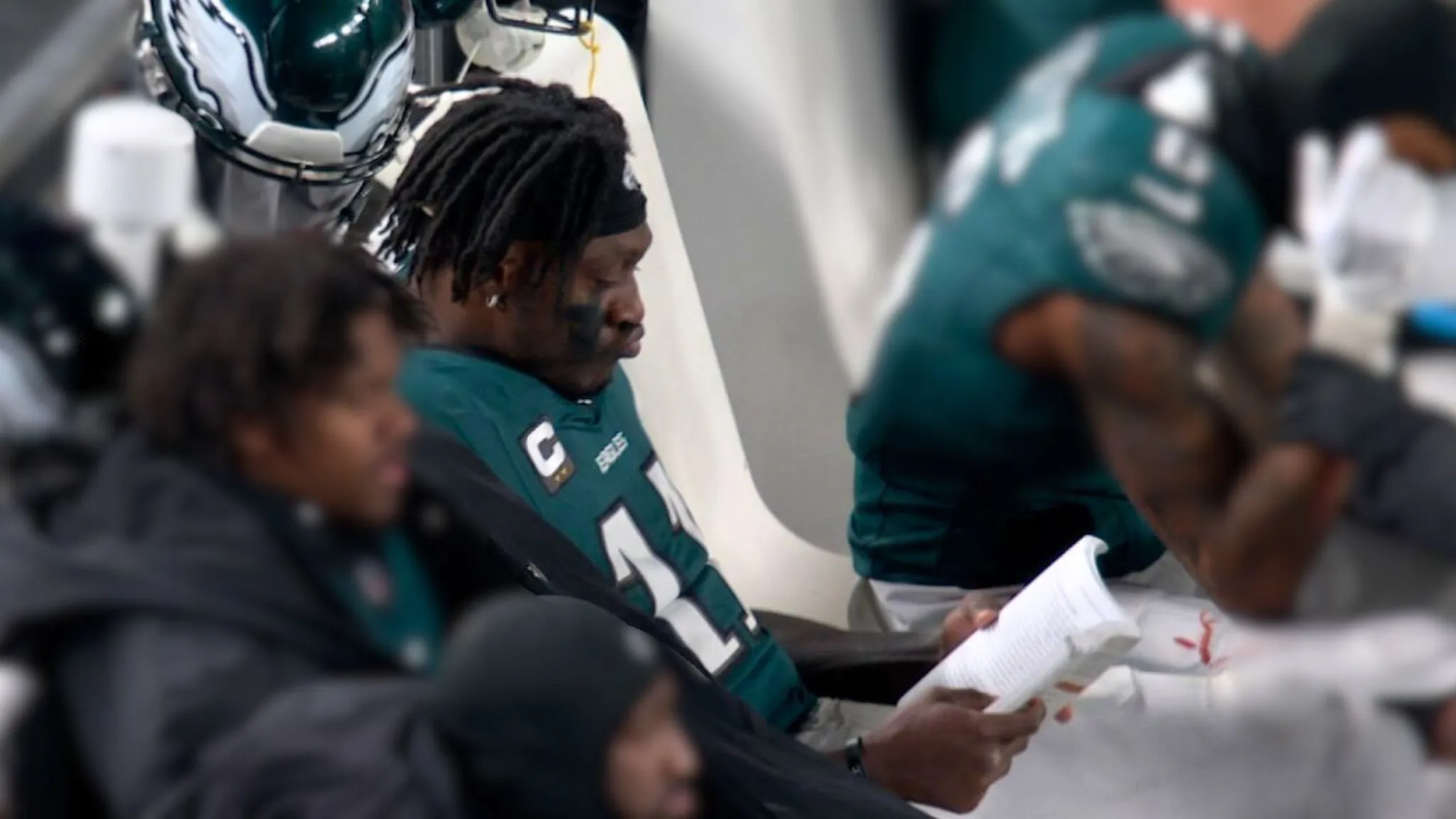

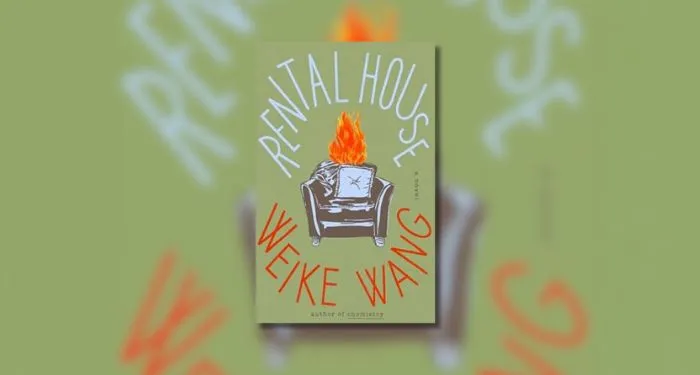


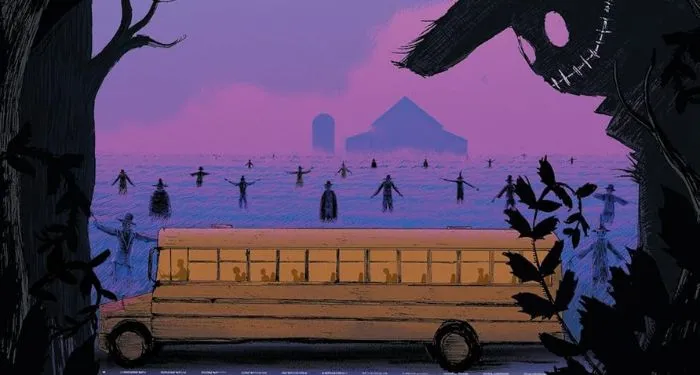
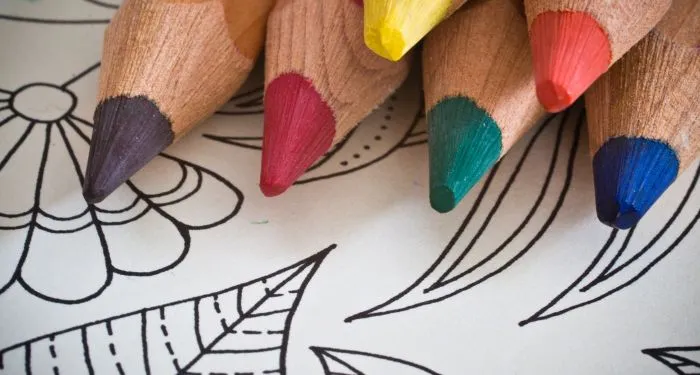





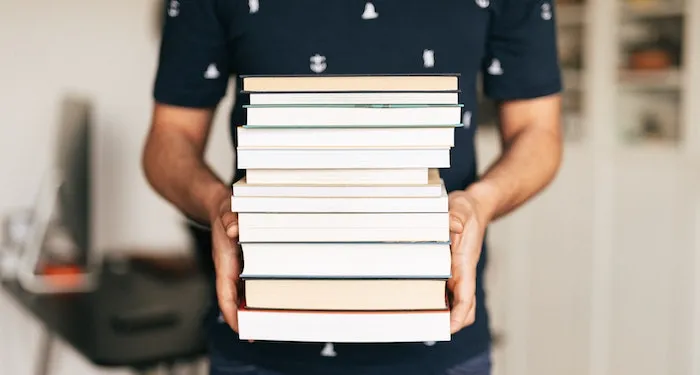



 English (US) ·
English (US) ·